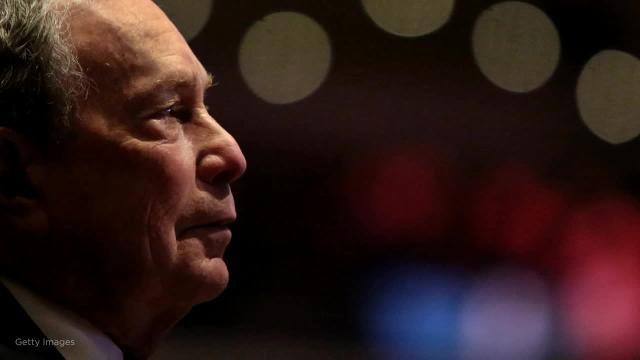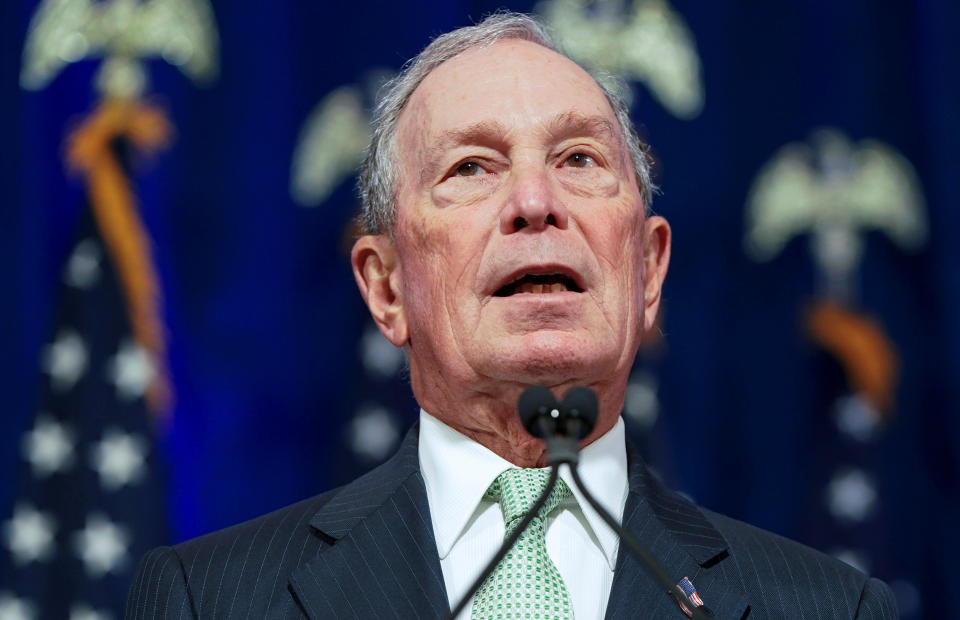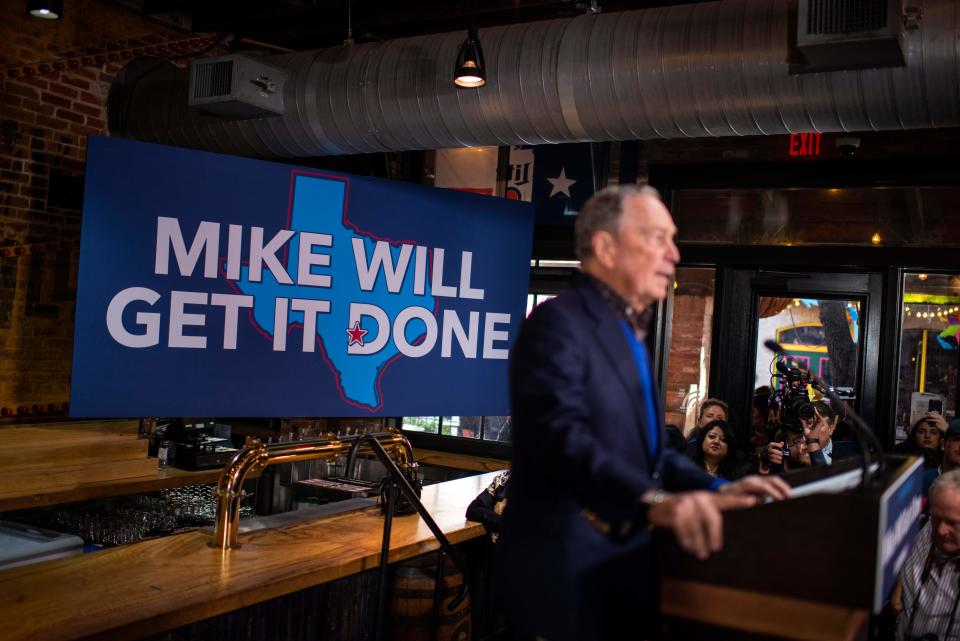Bloomberg pledges $70 billion to bolster black America in new plan

TULSA, Okla. — Former New York Mayor Michael Bloomberg will announce on Sunday his presidential campaign’s plan aimed at bolstering economic opportunity for black Americans, promising to triple their income over the next decade, but stopping short of promising reparations.
The announcement comes as the billionaire continues to face questions about the controversial "stop-and-frisk" police tactic he endorsed as mayor, and as he seeks to build support among African-Americans, a key voting bloc in the Democratic primary.
Bloomberg’s “Greenwood Initiative” plan is named after the Greenwood District, otherwise known as “Black Wall Street,” a Tulsa neighborhood that was once considered one of the most economically prosperous black communities in the U.S. The neighborhood was the center of a deadly two-day attack by a white mob during the 1920s. Ninety-nine years later, Bloomberg will announce his plan in the same district.

“For hundreds of years, America systematically stole black lives, black freedom and black labor,” Bloomberg will say, according to his prepared remarks. “And the impact of that theft over a period of centuries has meant an enormous loss of wealth for individuals and families, across generations — a kind of compound interest in reverse. Well, it’s past time to say, ‘Enough’ — and to damn well do something about it.”
New York social activist and black leader Geoffrey Canada will be present in the audience and is expected to endorse Bloomberg later Sunday evening.
Bloomberg, one of the richest men in the world, with a media empire and $50 billion estimated net worth, attributed some of his gains to the privileges that come with being a white man in America.
“I also know that my story might have turned out very differently if I had been black, and that more black Americans of my generation would have ended up with far more wealth, had they been white.”
Later in the speech, he is expected to add: “I didn’t know it at the time, but when my parents moved to the house I grew up in, the owners wouldn’t sell to them. They didn’t want a Jewish family in the neighborhood. Luckily for us, our Irish lawyer was willing to buy it and transfer it to my parents. But if my mother and father had been black, we would not have been so lucky.”

Bloomberg’s plan, according to details released by his team, focuses on investing in black business and home ownership, which includes “a $70 billion investment in the country’s 100 most disadvantaged neighborhoods.” The money will be controlled by a new White House office, the Neighborhood Equity and Opportunity Office, which will coordinate across federal agencies. The plan provided did not explicitly state the criteria to determine a level of disadvantage beyond being “place-based and evidence-based.”
In his proposal, mortgage and loan guarantors will also be forced to update their credit-scoring requirements, which the plan maintains is rigged against African-Americans. Under the initiative, a new Housing Fairness Commission would be established with a $10 billion fund to work with localities and municipalities to test and potentially reserve housing laws that might discriminate against buyers or renters of color.
Bloomberg’s presidential bid has been clouded by his fraught history with the NYPD stop-and-frisk policy when he was mayor. For years, Bloomberg passionately defended the practice, which gave officers broad authority to stop and search anyone suspected of a crime. But critics saw the police tactic as discriminatory against black and brown New Yorkers, who were an overwhelming percentage of those stopped.
Then, again in January of last year, in response to a question about the prejudiced perception of the policy, Bloomberg maintained that it had lowered crime rates.

But several months later, as he was exploring announcing a presidential bid, Bloomberg apologized.
“I was wrong,” he admitted at a black megachurch in Brooklyn. “And I am sorry.”
Police brutality is mentioned twice in his Greenwood Initiative, which requires implicit bias training for the law enforcement agency.
Specific forms of reparations did not appear in the plan. The reparations issue is often met by skittish behavior from presidential candidates, and none of the four frontrunners — former Vice President Joe Biden, Sens. Elizabeth Warren and Bernie Sanders, and former South Bend, Ind., Mayor Pete Buttigieg — address reparations directly in their policies focused on black Americans. All have conceded that the idea be studied further.
A senior Bloomberg adviser told Yahoo News that the former mayor’s thinking on reparations is in line with his rivals in support of continued study.
_____
Read more from Yahoo News:
